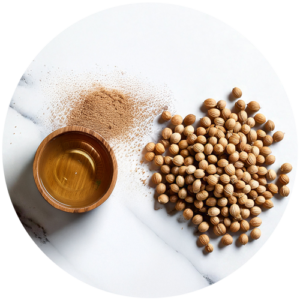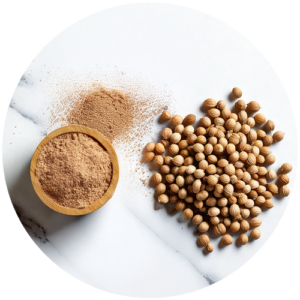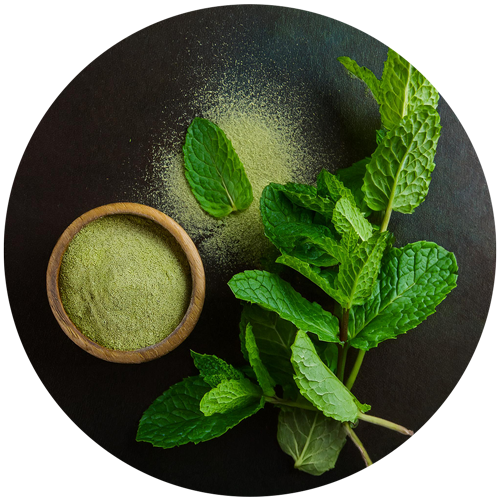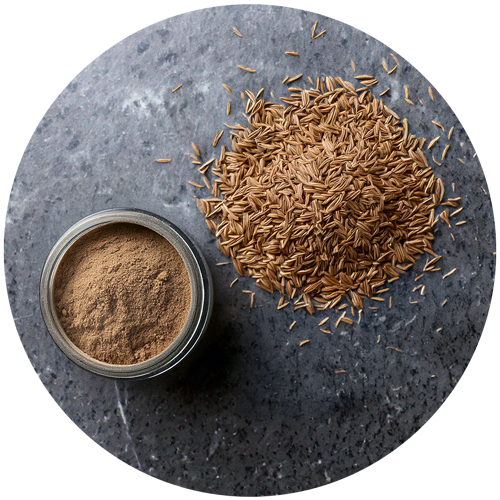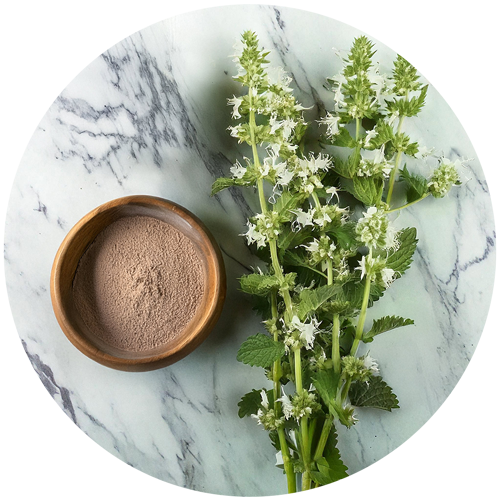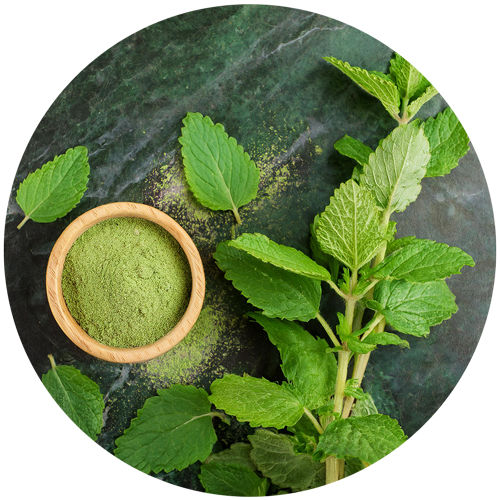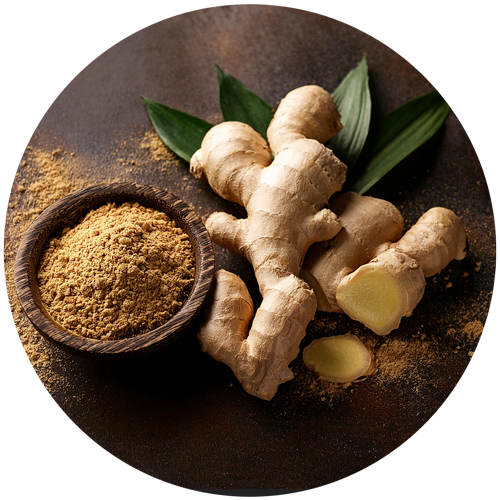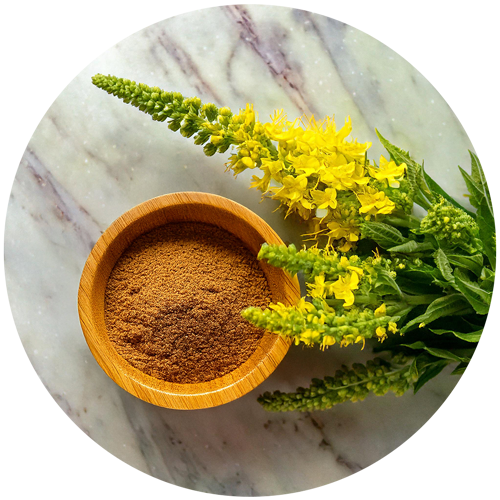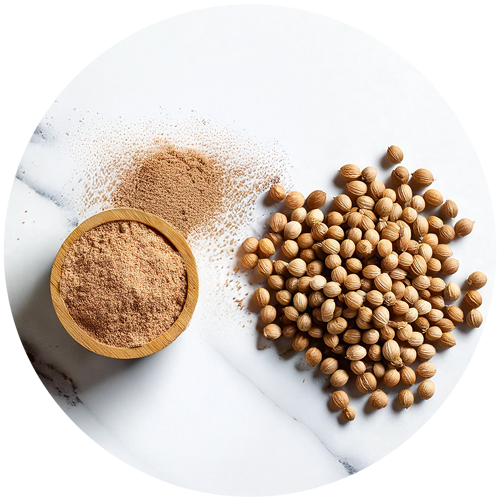

CORIANDER
Coriandrum sativum L. Digestion
Digestion Coriander seeds, Coriandrum sativum, rich in flavonoids and essential oils, support digestion, contribute to metabolic balance and protect cells against oxidative stress.
Regulations
and analysis
Identification : TLC
Data on traditional use
Cahier de l’agence du médicament (France) :
-
Traditionally used to aid digestion
-
Traditionally used to calm abdominal spasms of digestive origin.
German monograph :
- Used for indigestion and loss of appetite
Association ideas by health benefice
Select one or more axes:
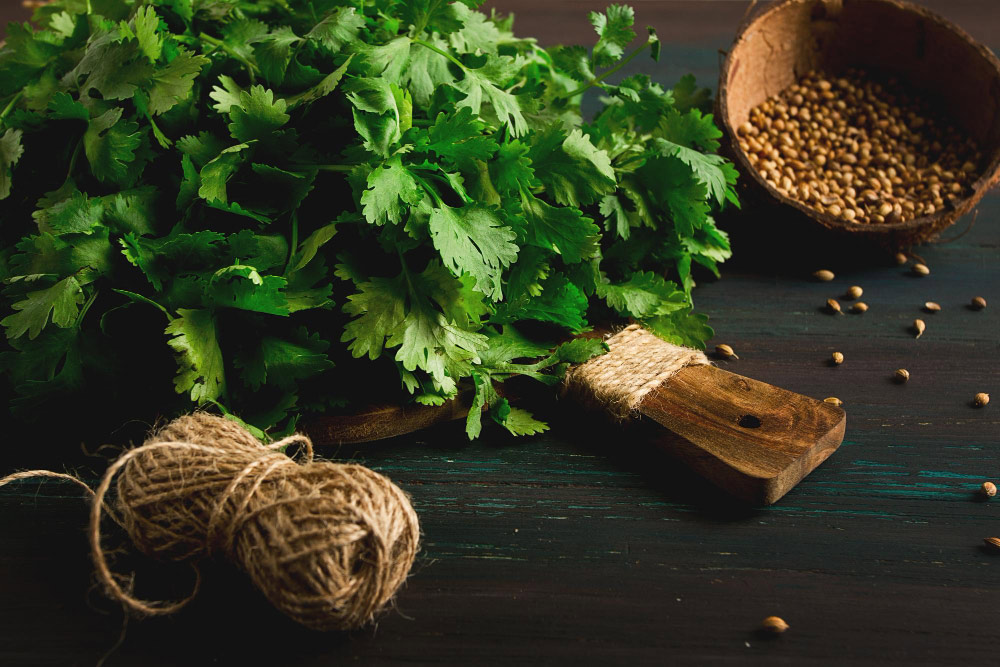
Detailed description
Coriander, Coriandrum sativum, a member of the Apiaceae family, is widely cultivated in temperate and subtropical regions for its culinary and traditional uses. Coriander fruits, commonly known as seeds, have been used for centuries in many cultures for their functional benefits.
Rich in bioactive compounds such as polyphenols, flavonoids (notably quercetin and kaempferol) and essential oils, coriander fruit supports digestive and metabolic functions. These compounds help maintain digestion, stimulating gastric secretions and promoting intestinal comfort.
The antioxidant properties of coriander extracts, thanks to their phenolic compound content, help protect cells against oxidative stress. In addition, the essential oils, rich in linalool and camphor, are recognized for their soothing effect on minor digestive discomforts and their support of the body’s natural defense mechanisms.
Coriander fruit is also studied for its role in metabolic balance, notably by supporting the natural regulation of sugars and lipids.
